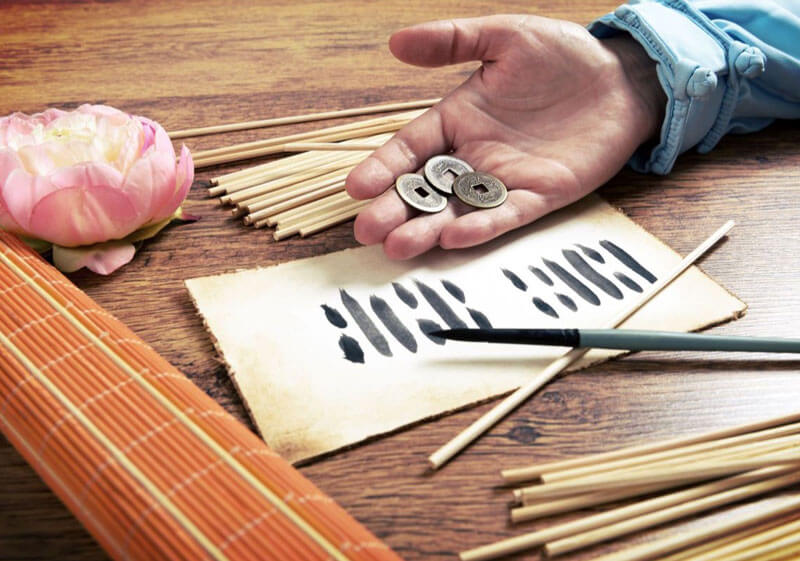Feng Shui: The I Ching & The Book of Changes
Feng Shui, a practice that originated in China, is popular today worldwide. It’s an art of arranging your space to create harmony between you and the environment where you live & work. Few people know that the roots of Feng Shui can be traced back to an ancient Chinese divination system called the I Ching, also known as “The Book of Changes.”
The I Ching has been in practice for more than three thousand years, one of the oldest and most respected texts in Chinese literature. It is believed to have been created during the Shang Dynasty (1600-1046 BCE) and was used primarily for divination purposes. The book contains 64 hexagrams, each comprising six lines, which are created to represent different states of the universe and the various forces of nature that shape our lives. The foundation is the relationship & interaction of the 5 Elements, Water, Tree (Wood), Fire, Earth & Metal with each other.
How the “Hexagrams” are formed create a guidance in relation to the question asked. Legend tells us the I Ching was created by “Fu Hsi” or “Fu Xi”, a mythical emperor said to have lived around 2800 BCE & received the knowledge of the hexagrams through a series of visions, which he then recorded in the form of a book. Later, during the Zhou Dynasty (1046-256 BCE), the I Ching was further developed and expanded upon by the philosopher Confucius, who added commentaries and interpretations to the original text.
One of the key concepts in the I Ching is the idea of yin and yang, representing the opposing forces of the universe. Yin is associated with darkness, femininity, and passivity, while yang represents light, masculinity, and activity. The interaction between these two forces is believed to create balance and harmony in the universe.
Feng Shui, translated to English meaning “wind and water,” is based on the principles of the I Ching. It’s a practice of harmonizing the flow of energy, or “chi” in a space by arranging furniture, decor, and other elements in a specific way. Feng Shui is a great method to create a balanced, harmonious environment that supports the specific person, to create the life they desire, bringing the potential of good health, happiness & prosperity into the mix. Yes, the principles used are the foundation, however; the most important part of the equation is creating the specific recommendations for the person living or working in the space.
In Feng Shui, the I Ching is used as a tool for divination and guidance. Practitioners will consult the book for auspicious timing for an activity, potential of an action or undertaking. I Ching practice is not limited to Feng Shui, it is a great way to begin the day, simply by asking “What is important for me to learn from today.” The Hexagrams are created by throwing a series of coins and creating the arrangement of the 6 lines. Hexagrams are interpreted in relation to the specific situation and can provide insight & guidance for the best way to proceed.

